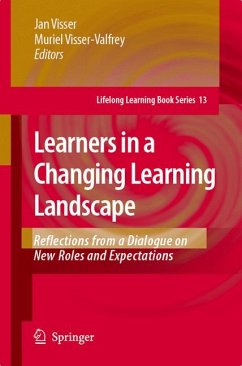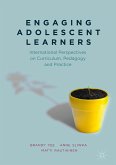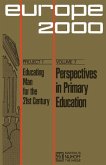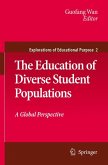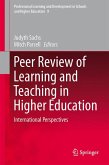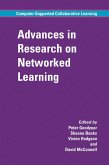"Working on this book was a very special kind of experience," says John Bransford (University of Washington), a contributing author to the book and renowned researcher on how people learn. While participating in the dialogue "we were all helped to 'walk our talk' and use technology to improve everything we did... I'm convinced that the conversations will not end with this book. Through technology-based dialogue facilitated by the magic touch of the editors' leadership, I'm sure that all of us-authors and readers of this volume-will continue to learn from one another. This is the way that collaborative science should work."
Dieser Download kann aus rechtlichen Gründen nur mit Rechnungsadresse in A, B, BG, CY, CZ, D, DK, EW, E, FIN, F, GR, HR, H, IRL, I, LT, L, LR, M, NL, PL, P, R, S, SLO, SK ausgeliefert werden.
"The world is changing, learners are changing, and thus the learning processes must change as well. Will technology answer the challenges of these changes? Is the institution of the school capable of adapting to the changes? These are crucial questions that educators and scholars in the field of learning have no choice but to ask themselves, and there is no better source for reflection on such questions than this book. We all have a lot to learn so we can cope with the changing world, and this book is a very useful tool for that."
Gavriel Salomon (Recipient of the Sylvia Scribner Award by the AERA Div. C, Recipient of the Israeli National Award for lifelong achievements in educational research)
"In this book the authors confront and address the challenges of teaching, learning, adaptivity, and collaboration in the 21st century. In a most readable prose, they share the results of their sustained dialogic inquiry about the impact of new technologies. They integrate a wide range of studies and provide an interdisciplinary vision of the future that is both hopeful and informative."
Vera John-Steiner (Author of Notebooks of the Mind and Creative Collaboration)
"I can think of few books that so richly analyze the complex transformations that we are now experiencing in the learning and education environment. Learning has become a multi-faceted, interactive and often auto-didactic process, driven by profound changes to the culture of institutions as well as to their purpose. This book allows us to navigate these new and often uncharted terrains with essays that traverse the most basic elements of learning right through to the complex shifts being engendered by digital technologies. A magnificent and valuable book!"
Ron Burnett (President of the Emily Carr Institute of Art and Design - author of How Images Think)
"Is the technologized world of today and tomorrow a landscape where learners can thrive? The contributors to this probing volume both celebrate and question the future of learning in an unsettling era of digital environments and global interactions."
David Perkins (Senior Professor, Harvard Graduate School of Education - author of Smart Schools and Outsmarting IQ)
"Learners in a Changing Learning Landscape is a snapshot of the state of thinking among participating scholars ... . For readers interested in depth over breadth related to the chapter topics, each author also provides chapter summaries and directs the reader to additional resources for further study. Most importantly, the authors individually, and the volume collectively ... stimulate further dialog. In this sense, the volume is intended to showcase an international dialog among researchers, theorists and practitioners from around the globe ... ."
(Michael Hannafin, Educational Technology Research and Development, Vol. 57, 2009)

